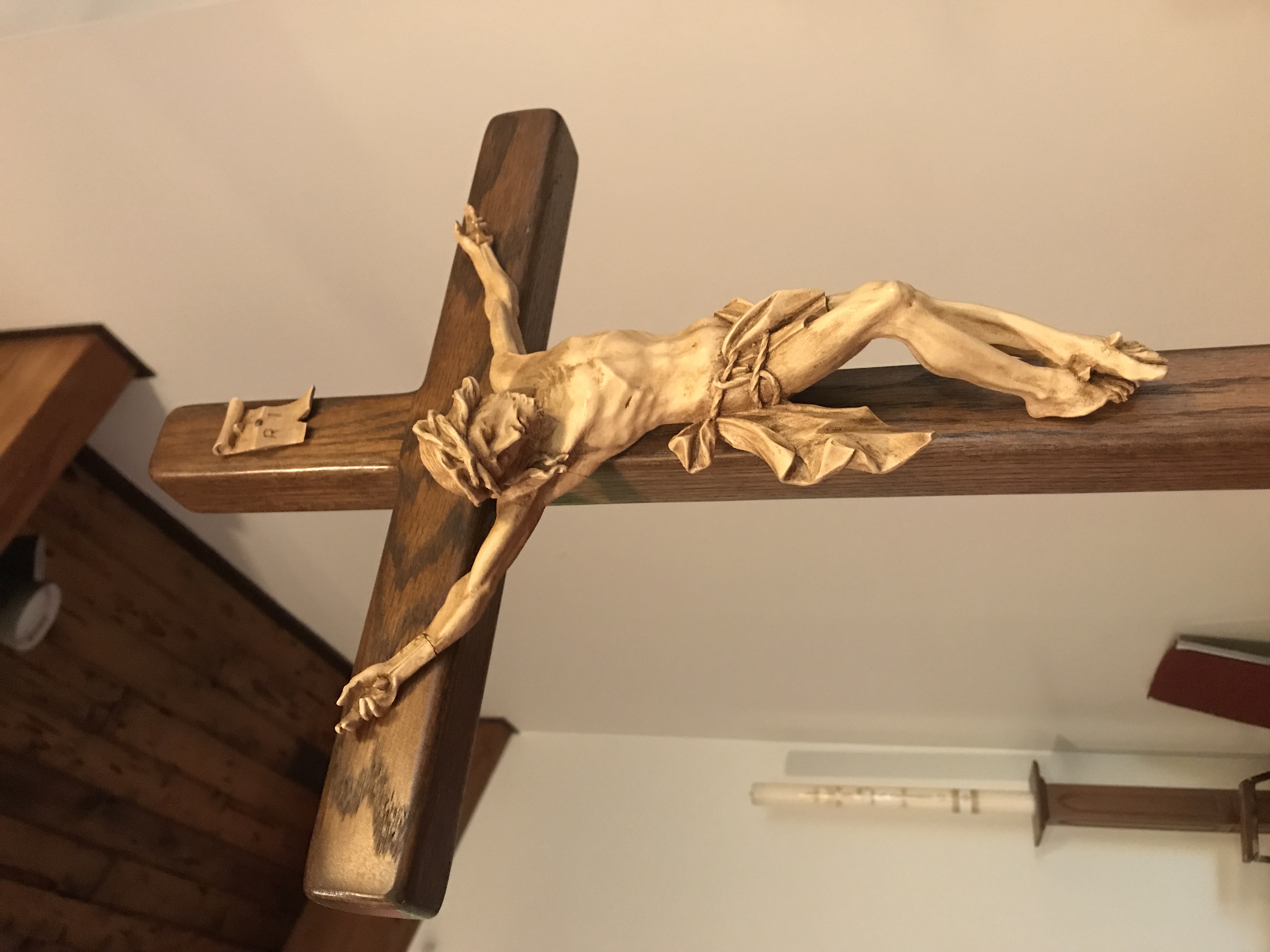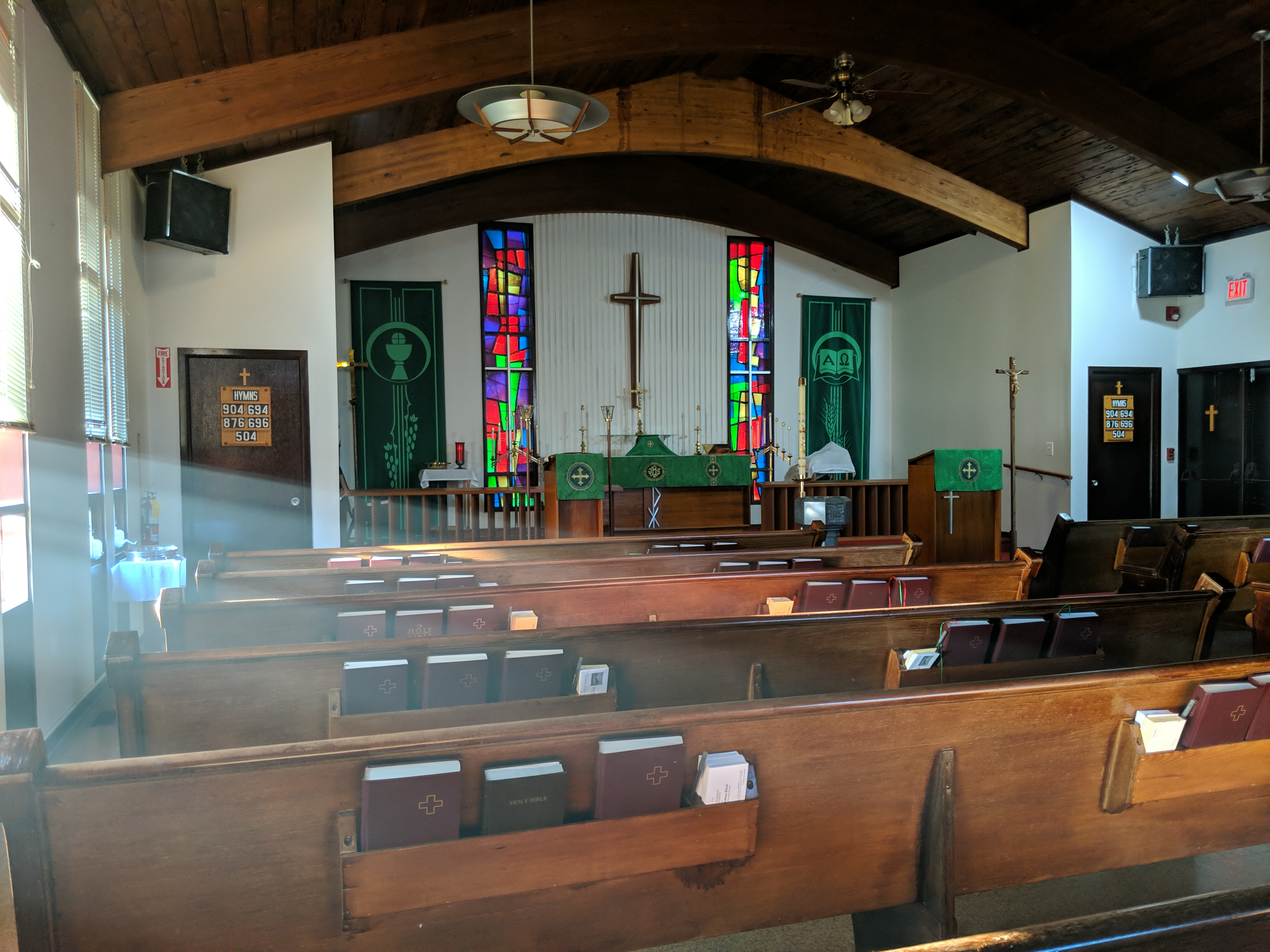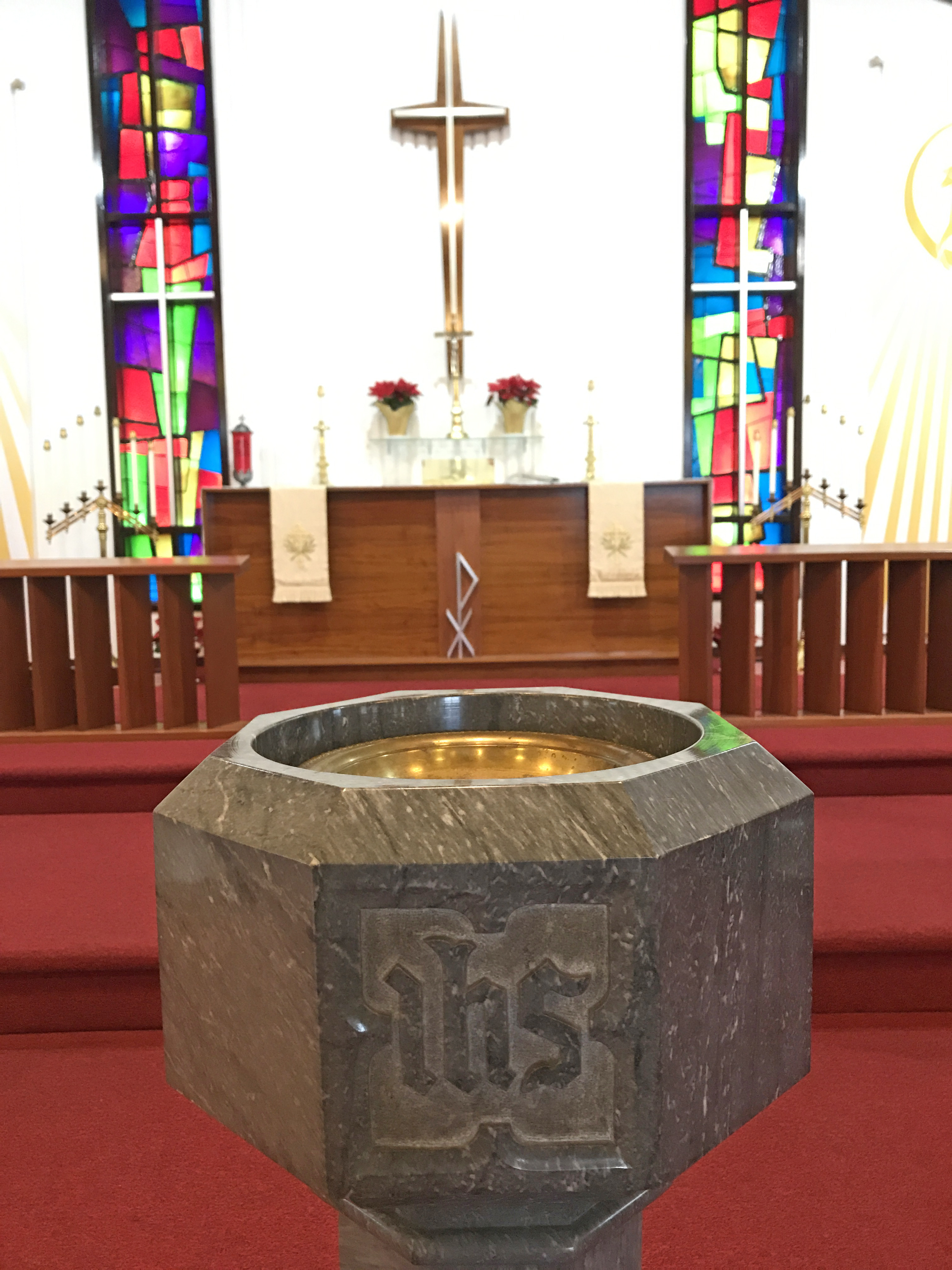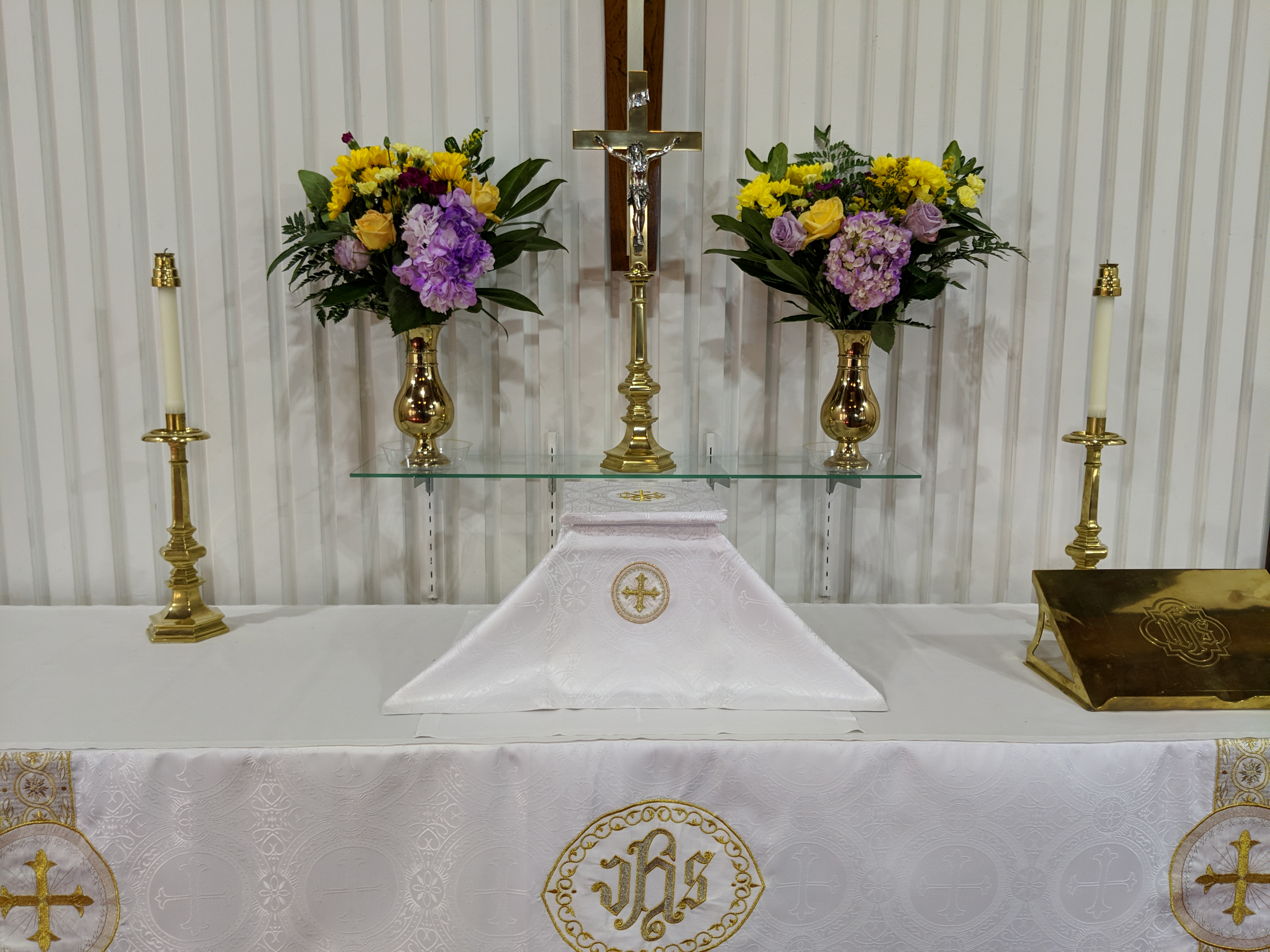Populus Zion Midweek – Wednesday 13 December A✠D 2023
✠ Psalmody: Isaiah 62:11;30:30, 29;Psalm 80: 1, 3, 14, 17;50:2-3, 5;St. Luke 21:26b-27
✠ Lection: Malachi 3:1-5;4:5-6a; St. Matthew 11:11-15
In the Name of the Father and of the ✠ Son and of the Holy Spirit. Amen.
As this Adventide is already half-over, we prepare for our coming Lord further by examining our life, our very existence, in the kingdom, in the reign, of heaven, for, indeed, He draws near. We hear what our dear Lord tells us about the Day that has come and in which we now live. Many in the Church like the words from Psalm 118, “This is the day that the Lord has made; let us rejoice and be glad in it.” There’s even a catchy American tune from the 60s that sets those words repeatedly to music for some hand-clapping, knee-slapping fun and joy. There’s absolutely nothing wrong with being joyful in the Lord, for even we curmudgeonly Lutherans will celebrate Gaudete this coming Sunday and take up songs of Rejoice for ourselves. We have great reason to rejoice. We have great reason to praise God that He has made the Day that He has made. My issue with the catchy tune and the indiscriminate use of the phrase is that it is short-sighted in respect to what Psalm 118 is talking about. Indeed, we know by our confession of the first article of the Creed that it is a blessing to see another sunrise, to receive it, not only as a sign, but as what we need to support this body and life. We are thankful to hear the house finches flutter around our feeders. We are glad that our animals (and children) are healthy. We rejoice that He has certainly given daily bread unto our cupboards and refrigerators. We rejoice that we have the right winter gear to wear as we go out to gather in His house. His mercies are new every morning, but hear now the surrounding words to that repeated psalm verse and see the Day to which the poetic prophecy is pointing, especially considering what you’ve heard thus far in Advent: Open to me the gates of righteousness; I will go through them, And I will praise the LORD. This is the gate of the LORD, Through which the righteous shall enter. I will praise You, For You have answered me, And have become my salvation. The stone which the builders rejected Has become the chief cornerstone. This was the LORD’s doing; It is marvelous in our eyes. This is the day the LORD has made; We will rejoice and be glad in it. Save now (Hosanna, in other words), I pray, O LORD; O LORD, I pray, send now prosperity. Blessed is he who comes in the name of the LORD! We have blessed you from the house of the LORD. God is the LORD, And He has given us light; Bind the sacrifice with cords to the horns of the altar.
We can clap our hands and slap our knees every morning, and evening, because they are ones that indeed the Lord has made and brought about, but we do not simply rejoice and be glad in it because it is new, at least not in the way the psalm calls us to. We rejoice in the Day of Salvation, in the Day of the Lord. We can understand this in two ways: firstly, as that Good Friday, the very day in the passage of time on which our dear Lord hung on the tree, rejected by men, crushed for our iniquity, broken and bleeding for our forgiveness. He was bound to the altar of the cross for our salvation. But secondly, the Day is the one of the Lord that was begun by His first Advent and will be concluded by His second. Today is the Day, for now is the time of salvation and the prophet Malachi prepares the people upon the earth for the coming One by describing the things that the enduring Day of the Lord includes.
As his name literally means “My messenger”, we hear the message that Malachi proclaims directly from the Lord: “Behold…” Already, God puts all creation on notice. To behold something is to look upon it while paying attention, for our attention it deserves. Behold, I send My messenger, and he will prepare the way before Me. We know the messenger to be the Baptizer, the forerunner of Christ, John. He prepares the way for Yahweh. He prepares the way for Jesus. Behold, He is coming. There is no doubt. They were not aware of it then, but Malachi was the last prophetic voice before the coming of the Lord. Following his words, the Lord was silent for over 400 years before speaking directly to the families that would welcome the babies, John and Jesus, and usher in the Day of the Lord.
Again, we shall celebrate with great, great rejoicing the Holy Nativity of our Lord not too long from now, but cloaked in the mild gentleness of the Babe in the Manger, hidden in the humble flesh of the Son of David coming lowly into Jerusalem, mounted on a donkey, was the very One about Whom Malachi also said, But who can endure the day of His coming? And who can stand when He appears? For He is like a refiner’s fire and like launderers’ soap. He will sit as a refiner and a purifier of silver; He will purify the sons of Levi, and purge them as gold and silver, that they may offer to the LORD an offering in righteousness. This, he spoke not only of the Last Day on which the King will come to judge both the living and the dead, but about every evening and morning that we experience in this time between the first and second Advents. His first one brought the beginning of the Last Day because the salvation notice has been posted unto the four corners of the earth. The proclamation of the Good News continues to go out, calling sinners to repentance and giving warning that all might escape from the wrath to be revealed when He comes again in glory. The life that we live in this Day that is both now and not yet is one where we are refined in the fire of repentance. Who can stand on their own merit before God? None. But also, who can forgive sins, but God alone? Alleluia, only Him! And He actively does in the repentant lives of those belonging to Him because, by faith, He is feared among them.
We must always remember not to think of godly repentance and fear with any tinge of negativity. Repentance is a gift from God by which we are sorry for the sins that would destroy us if we were left to them and thus, we turn from them. We turn from them to the One in Whom we have redemption, the forgiveness of sins. This means that there is more to your life of repentance in this enduring Day of the Lord than just feeling bad because you have failed God by breaking His commandments. This means that to fear Him is to not misunderstand Him, but to praise and acknowledge Him to be the Lord. The fear of the Lord is the beginning of wisdom.
Returning now to repentance, remembering that it is contrition in the heart over sins and faith in Jesus that His blood brings forgiveness for those sins; repentance includes all the things that you do to steer your sorry donkey-self from where it wants to stray onto the ways of righteousness as your dear Lord bids you by His glorious, life-giving Word. Your flesh doesn’t want to pray, so when you do pray, you are repenting and trusting that God’s command to pray is good and that hearing your prayers is pleasing to Him and answering them are what He desires, and delights in. When you despise preaching and His Word, whether this means that you’re not in the mood to come to church, stayed up too late the night before, or are just feeling blah inside about God, and yet you come to church anyway, that also is repentance, for you are turning from the desires of the flesh to the desires of the Spirit. All such godly acts have some degree of repentance in them, and this is good. Repentance isn’t something only done by mountain- or monastery-dwelling, long-bearded, constant-humming monks. Repentance is the baptismal life of every Christian and it is, as it is supposed to be, uncomfortable, embarrassing, and often painful to the sinful flesh, just as a refiner’s fire is to the dross clinging to silver, but does not the fire bring about its purity to the Refiner’s good pleasure? Does not the abrasion of the soap that God uses to clean and drown the Old Adam in the wash tub hurt, yet result in the garment gleaming bright as He made it to? This is the work of the coming One, the Lord Whom you seek, because the refined heart desires more of such purifying, and we all have sins galore anew every morning from which our blessed King seeks to free us, even by righteous fire and abrasive washing.
The result is a wonderful preparation for that ultimate Last Day when this calendar will end at the Son of Man comes in a cloud with power and great glory; when the seasons, days, and years signed to us by the sun, moon, and stars are ended. By this Lord establishing His Day, His salvation brings with it the necessary, painful, yet magnificently purifying lives of repentance as we battle the temptation not to fear Him. Isn’t a lack of repentance a lack of the fear of God? Where is the fear of the Lord of hosts in a life that lacks repentance? It’s sadly not there, for where a heart does not know that the Lord is One to be feared, the turning away from sin and toward Him is absent. It is not so among you, beloved, for you are here, repenting. You have come to hear. You have come to confess. You have come to be forgiven, because you know that in this Refiner’s hand, in His Day that He has made, is the treasure beyond all measure. In this long-expected Jesus is the salvation that you will have forever, one that yields beautiful fruits of repentance in the days here, days in the enduring Last Day in which all of them need regular refinement while we dwell in this wilderness, while we live in His kingdom.
In ✠ Jesus’ Name. Amen.















Comments are closed, but trackbacks and pingbacks are open.